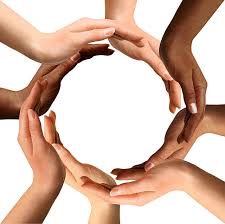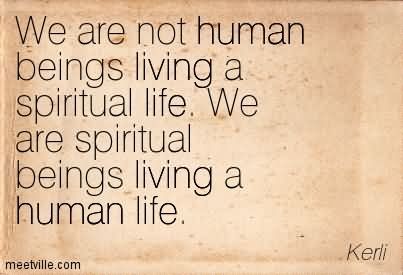While at a family gathering nearly two decades ago, I challenged a conversation between my father and a family friend, both white men in their late 40’s. That evening, these men spoke of their common wish to retire to Mexico, where life would be considerably cheaper. I initially sat in stunned silence, having just recently awakened to the horrific exploitation of land and human labor inherent to the U.S. capitalist system, its relationship with past and present racism, and my complicity as a white woman, regardless of my conscious intent. I eventually joined in the discussion, but was hopelessly inarticulate. My efforts to convey the seriousness of what I considered misguided and damaging plans were received as the naïve ramblings of youth. Out of frustration, my final contribution was a softly-stated lament that “I just think there needs to be more love in the world.”

The inadequacy I felt in that moment was transformative, spurring me to develop a deeper understanding of social, economic, and political issues. I wanted to be understood more than ever before, for my voice to be strong and clear. I wanted my elders to recognize the dehumanization and violence inherent in our society and make different choices. Expanding outward, and extending over subsequent years, I sought to influence the “hearts and minds” of people who do not recognize the destruction and suffering caused by oppressive systems and relationships.
Fast forward to March 2014, when I witnessed john a. powell, legal scholar and professor at the University of California at Berkeley, deliver a keynote speech at a conference. He spoke about what it means to be fully human and the need to recognize our interconnections, bring spirituality back into the public space, and understand that our private experience affects social/political/economic life. His lecture paralleled much of what I was thinking and writing about, and it inspired me to read one of his earlier published articles. This reading brought my long-ago conversation at my family’s gathering to mind. In the article titled, Does Living a Spiritually Engaged Life Mandate Us to Be Actively Engaged in Issues of Social Justice?, john a. powell argues that there is a kind of surplus suffering in the world which is caused by a lack of love, lived out through our social and economic systems and institutional arrangements. I immediately looked for the date of publication and was struck that his inspiration to write about the need for increased love in the world was not so far removed from the moment when I made my desperate declaration.

There is an expanding wave of energy and a growing movement of people calling for humanity to recognize that spiritual development and social care and action are intertwined. They are bound together by the inspiration to love. The book, Living in the Tension, is in service of this energetic push.
An essential first step is recognizing that social justice advocacy and spiritual traditions each have particular orienting principles. Over the past decade I have attempted to live out the values of both spiritual and advocacy perspectives.
A few essential tenets of my spirituality include:
• Humanity is connected to all living beings; we are all one.
• Equilibrium between the outer (action) and inner (meditative) paths is desirable.
• The movements of spirit and soul are distinct, and both require attention.
Essential tenets of my social justice advocacy include:
• All people are injured by racism, sexism, classism, homophobia, etc.
• Non-violent living requires the unraveling of one’s relationship to privilege and oppression.
• Supporting collective action to end individual and systemic oppression is a social responsibility and a part of being fully human.
Although the principles appear compatible, tensions arise when trying to live out their associated values, strategies, and approaches. Seeming contradictions and internal turmoil are most pronounced when considering issues of race, racial identity, and racial justice.

Over the years, one thing has remained constant; meeting the expectations set forth by both spiritual and racial justice circles is easier said than done. Staying in the dialogue, however, and working to find a path through the challenge is essential for collective well-being and social transformation. It is a necessary part of riding the wave. For this reason, Living in the Tension explores the paradoxical tensions that accompany an attempt to remain true to both spiritually focused and racial justice focused principles at the same time.

